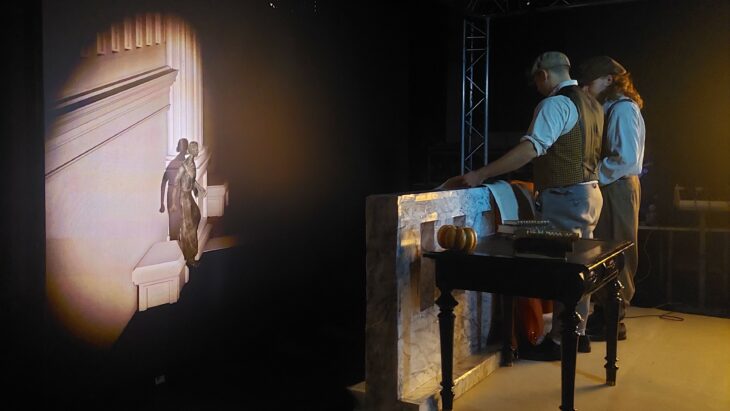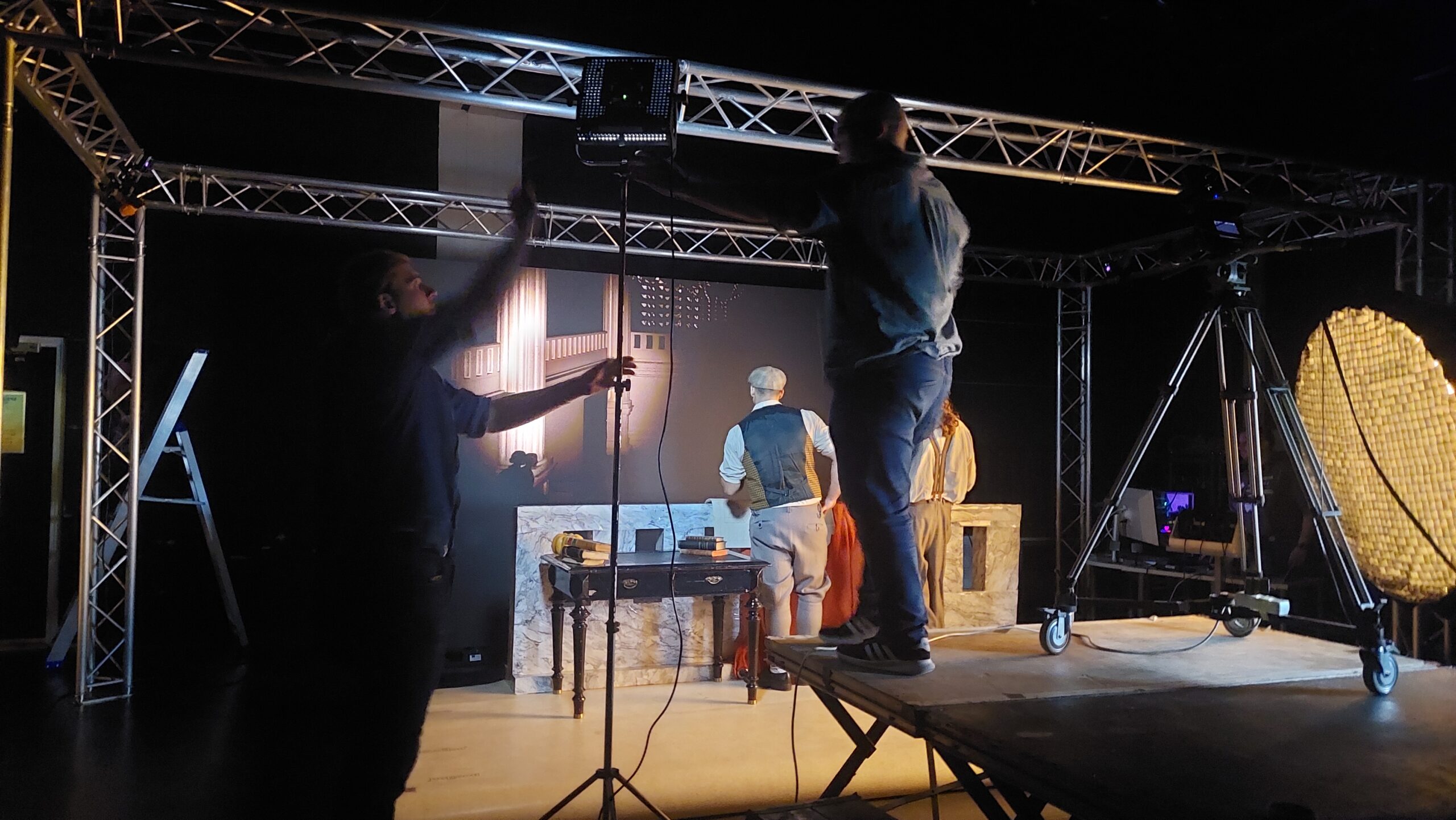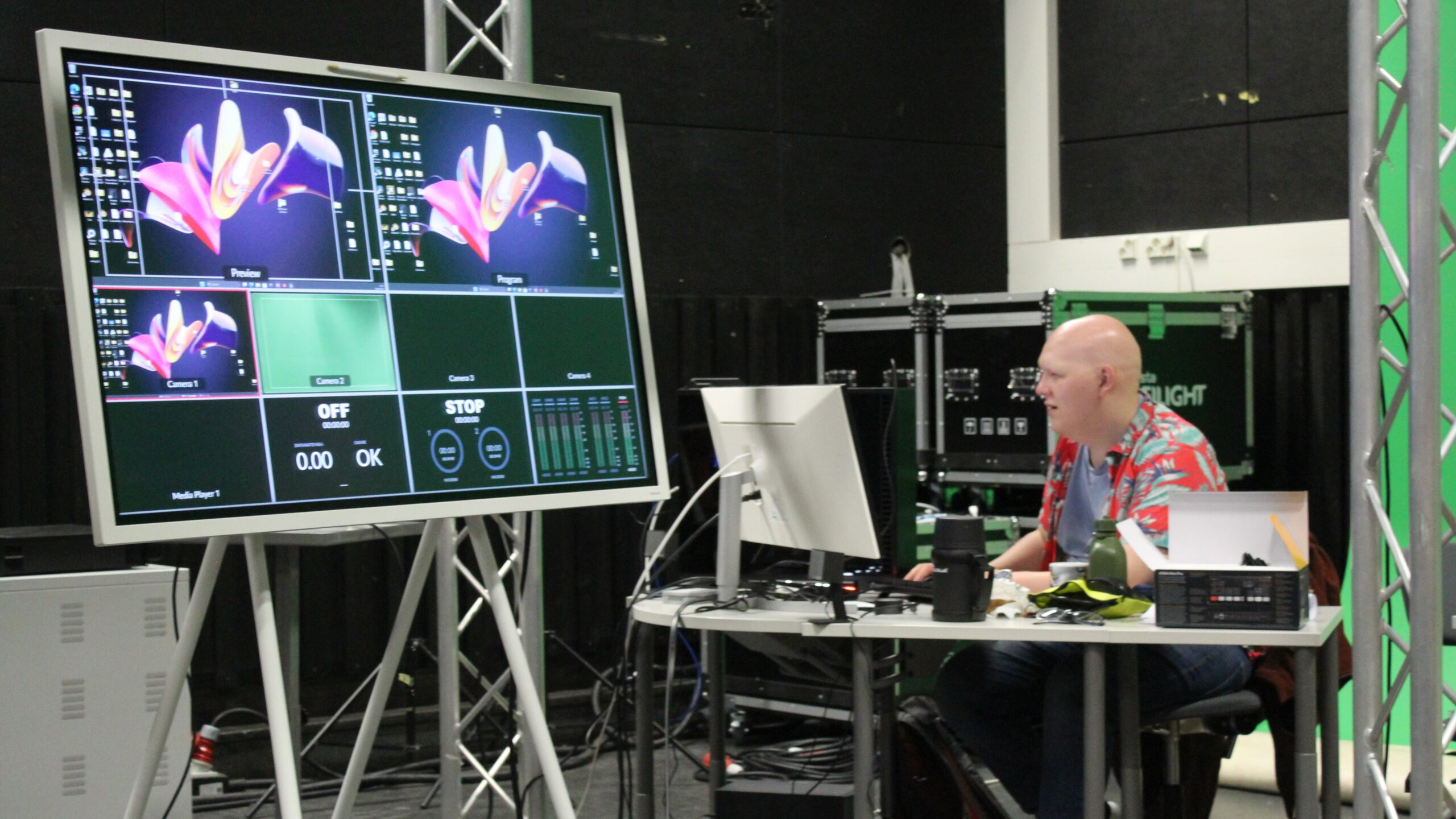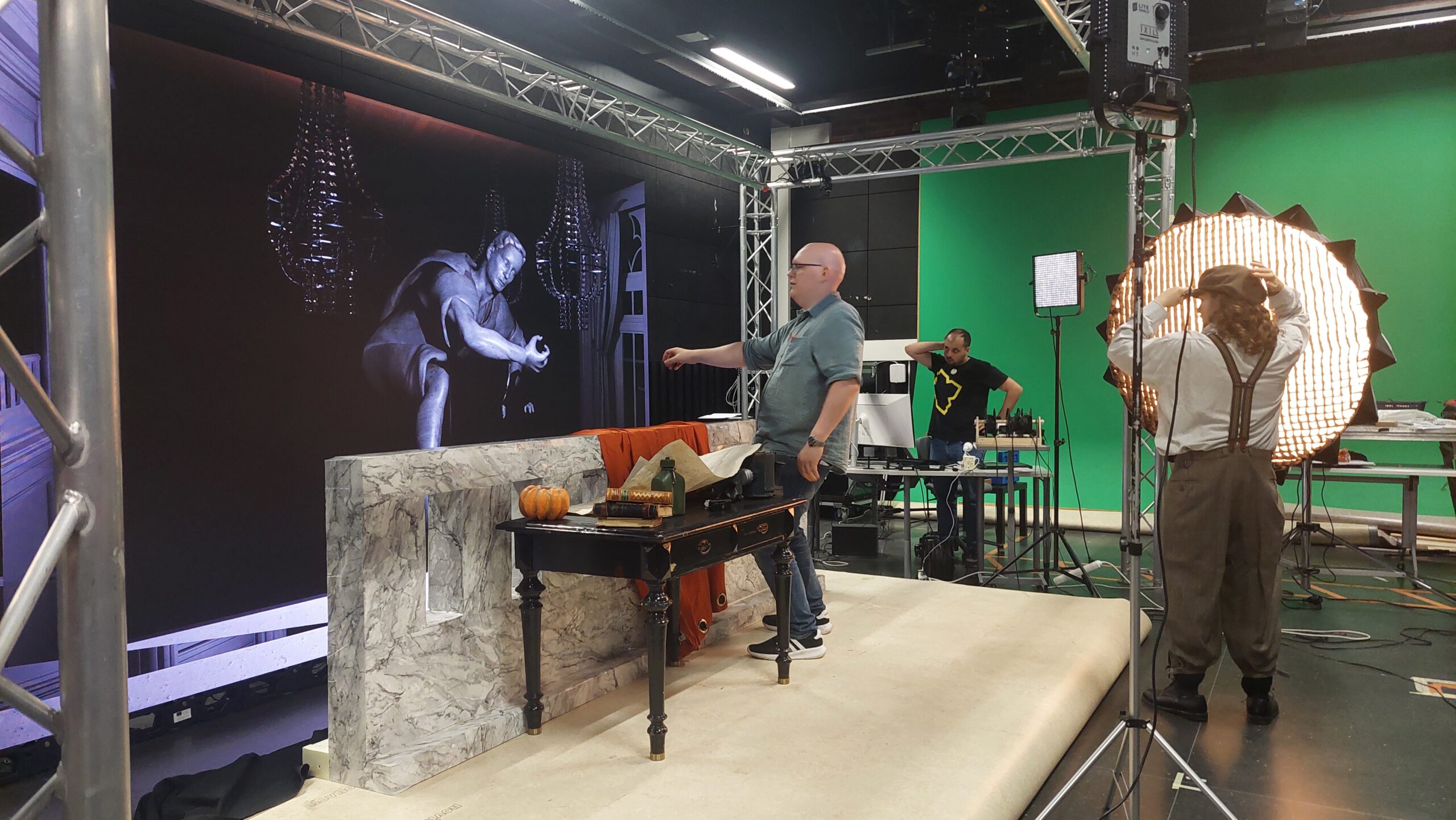
Game Designers Create Horror Film with Unreal Engine – Using the Same Technology as The Mandalorian and Avengers: Endgame
On the last September weekend, a team of game designers booked the studio’s grounds to shoot a horror movie using the same tech that brought us The Mandalorian, Top Gun: Maverick, and even Avengers: Endgame.
If you’re familiar with movie production, you probably know what I’m talking about – Virtual Production.
Directed by Daniel Brierley, this short horror movie was filmed on a virtual set, which is exactly what it sounds like—a set that doesn’t physically exist. Instead, it uses game engines like Unreal Engine, along with other high-end tech, to create environments on ultra-high-definition LED screens. These screens stand behind the actors during filming, creating super immersive backgrounds that feel just as real as a physical set.

The idea for the movie originated during an experiment with the studio’s equipment. “Last year, we were messing around with a tracker as a flashlight in Unreal Engine. It worked, and we even did a little jump scare test with a statue. We shelved it, but when the competition came along, we thought, ‘Why not take this further?’” Daniel explained that this experiment was the seed for their haunted-house storyline, where a team of hired muscle breaks into a mysterious mansion lit only by flashlights.
There’s a lot of work that goes into making a virtual production happen. Before any filming took place, the team spent weeks (and months!) in pre-production.

“There’s a lot of pre-production work needed with virtual production. It’s not that it’s faster than traditional filmmaking – it’s just that all the work happens beforehand.” He added that ideally, they would have had more time to prepare, but given the quick turnaround, the team pulled it off remarkably well.
But what makes virtual production so special? The LED screens behind the actors don’t just display static images—they project 3D-rendered scenes that can change in real time. The crew worked in front of an elaborate backdrop of statues and chandeliers, that combined digital and physical props. The actors held a physical “Flashlight” that interacted with other objects in Unreal Engine in real time!
This setup allows the actors to interact with their surroundings naturally, unlike a green screen, where the actors would have to use their imagination to picture the environment that they are playing in.
The movie relied heavily on blending physical and digital props. Using Unreal Engine, 3D artists created statues that were central to the horror elements of the film. The team also physically constructed parts of the set, borrowing elements from the theater and even handcrafting certain pieces, like balcony railings or flashlights.

On shooting day the set needed a whole team to bring everything together. Someone to manage the lighting to set mood, a sound engineer to capture every creak and whisper, and an Unreal Engine operator (Andreas Marcato) to control the live special effects happening during each shot. Christian and Markus, the two actors, brought the characters of Charlie and Greg to life. And then, there was Daniel – the director who made all of this possible.
One of the most exciting technical achievements, according to Daniel, was integrating motion capture into the project. “We used a Rococo suit to motion-capture all the movements of the statues. By mixing those animations with strategic lightning flashes, we created the illusion that the statues were moving when the lights went out.”
Reflecting on the nature of virtual production, Daniel shared: “The beauty of virtual production is that every shot presents a unique problem to solve. It’s a constant challenge, but that’s what makes it so fun. And honestly, I’d love to do this professionally once I graduate.”
Despite the hurdles, the experience of seeing everyone’s work come together was the most satisfying for Daniel. “It’s when all the individual pieces of work start to come together that it really looks like something special. That moment, when you’re on set and everything clicks into place—it’s amazing.”
This whole project is part of a horror shoot competition, just in time for the spooky season! Feel free to check it out HERE!
- How To Get Started With Art - 25th April 2025
- What Makes The Finnish Game Industry So Special - 17th April 2025
- Why Retro Gaming Is Still Cool In 2025 - 11th April 2025
